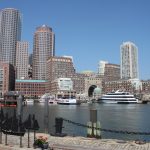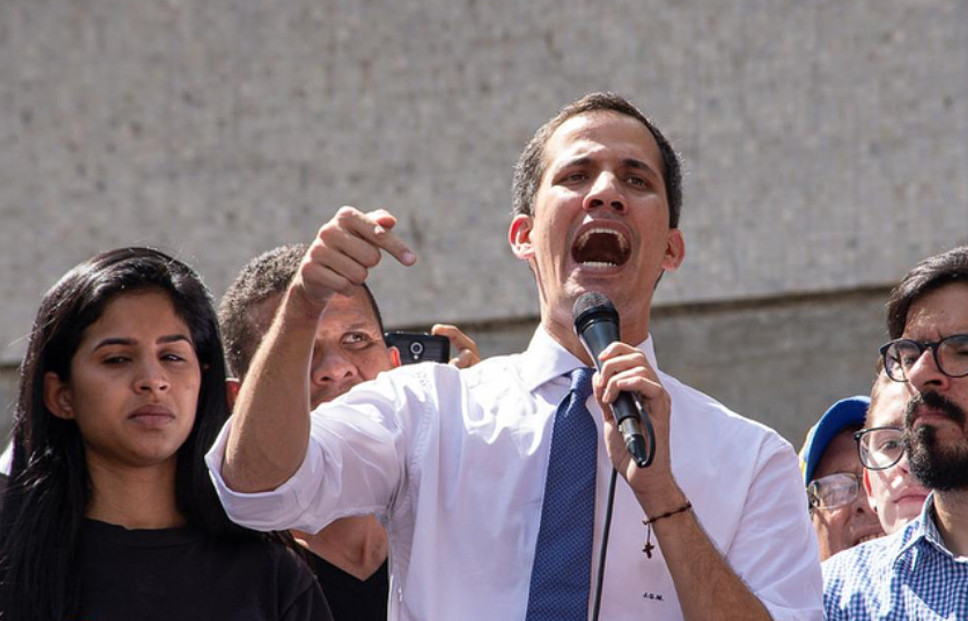CARACAS, Venezuela (ViaNews) – Apparently, Venezuela has a new president. The president of the National Assembly, Juan Guaidó was sworn in as interim President of Venezuela in front of hundreds of thousands of Maduro’s opponents at the end of a rally convoked more than a week ago, obeying what he says to be his Constitutional duty.
“In my condition of President of the National Assembly, invoking our national Constitution and before God Almighty, Venezuela, my Assembly colleagues and members of the opposition, I swear to formally assume the competences of the National Executive Power as President in Charge of Venezuela to achieve the end of the usurpation, a transitional government and free elections”. Guaidó said at the John Paul II Square in Caracas, in front of his supporters.
Since January 10th, when the National Assembly declared that Maduro usurped the Presidency as they claim the latest elections were not free, pressure for Guaidó to assume the Presidency was immense both internally and internationally. Most people did not expect he would assume the Presidency today. And he surprised them all, both in Chavismo and in the Opposition.
In the meantime, the opposition has denounced repression of protests all over the country, mainly in the capital, Caracas, Zulia (western Venezuela, close to the Colombian border) and Monagas, where the Episcopal Conference of Venezuela denounced that the National Guard and armed groups supported by Maduro’s regime had more than 700 protesters under siege at the Maturin Cathedral. There are 13 confirmed deaths in more than 5 states since the beginning of protests a couple of days ago
The International Arena
The US was the first country to recognize Guaidó, less than an hour after Guaidó assumed the Interim Presidency. “The Citizens of Venezuela have suffered for too long at the hands of the illegitimate Maduro regime. Today, I have officially recognized the President of the Venezuelan National Assembly, Juan Guaidó, as the Interim President of Venezuela” said Donald Trump, president of the US in an official declaration.
Canada was next to recognizing Guaidó as Interim President. They were followed by Brazil, who’s President, Jair Bolsonaro, said Brazil “recognizes Mr. Juan Guaidó as President in Charge of Venezuela” and that they will “politically and economically support the transition process in order for democracy and social peace return to Venezuela”.
Similar declarations of support and recognition of Guaidó as President were delivered by Paraguay, Argentina, Colombia, Costa Rica, Peru, Panama, Guatemala, Chile, Ecuador, Honduras, and France. Donald Tusk, President of the European Commission has asked the European Union to reach consensus and support Guaidó as legitimate President.
In a widely criticized declaration, the UN said they “wanted all the relevant actors to compromise to political negotiations that are inclusive and credible to face the challenge the country faces”.
Unsurprisingly, Russia, Turkey, Cuba, Bolivia, and Mexico (Maduro’s newest ally) said they would continue to recognize Maduro’s regime.
A few hours after Guaidó proclaimed himself as acting president, Maduro spoke from the Presidential palace and in an unexpected move, broke diplomatic ties with the US and called for all of its diplomatic personnel to leave the country in the next 72 hours.
Quickly, Marco Rubio, one of the most active Congressmen in the US in the Venezuelan crisis, said the US Government did not recognize Nicolás Maduro as President, and therefore, would not send their personnel back to the US.
The first presidential act of Guaidó was to issue a statement inviting all diplomatic personnel to stay in Venezuela and inviting all the countries that recognized him as President in Charge to establish diplomatic relations with the Transitional Government.
Therefore, Maduro’s declaration has three possible outcomes: 1) The US personnel leaves the country, which seems unlikely considering Rubio’s declarations; 2) The US personnel stays and Maduro does nothing or 3) The US personnel stays and Maduro tries to force them out, which could lead to an even bigger diplomatic crisis and could serve as an excuse for armed intervention.
What’s coming next?
As usual in Venezuela, it is uncertain. As of today, Guaidó and his supporters have not stated a clear route. New demonstrations have not been announced, nor new diplomatic sanctions against the regime. The possible game changer is the Military, and in some regional and smaller-scale protests, some National Guards have joined the demonstrators. Yet, the higher ranking officers seem to remain loyal to Maduro, at least publicly.
Probably in the next few days, there will be many spontaneous protests and more diplomatic pressure. It remains to be seen how Guaidó will try to exercise his political power. Also, Maduro and his supporters will probably try to be cautious because some reports say that the US would consider any attempt to imprison him as aggression against Venezuela’s legitimate government. Mike Pompeo, secretary of State of the US, said ‘former president’ Nicolás Maduro had no legal authority to break diplomatic relations with the US, so they would continue to conduct them with Guaidó’s administration and the diplomatic personnel would not leave the country.
More to come. Stay tuned.




